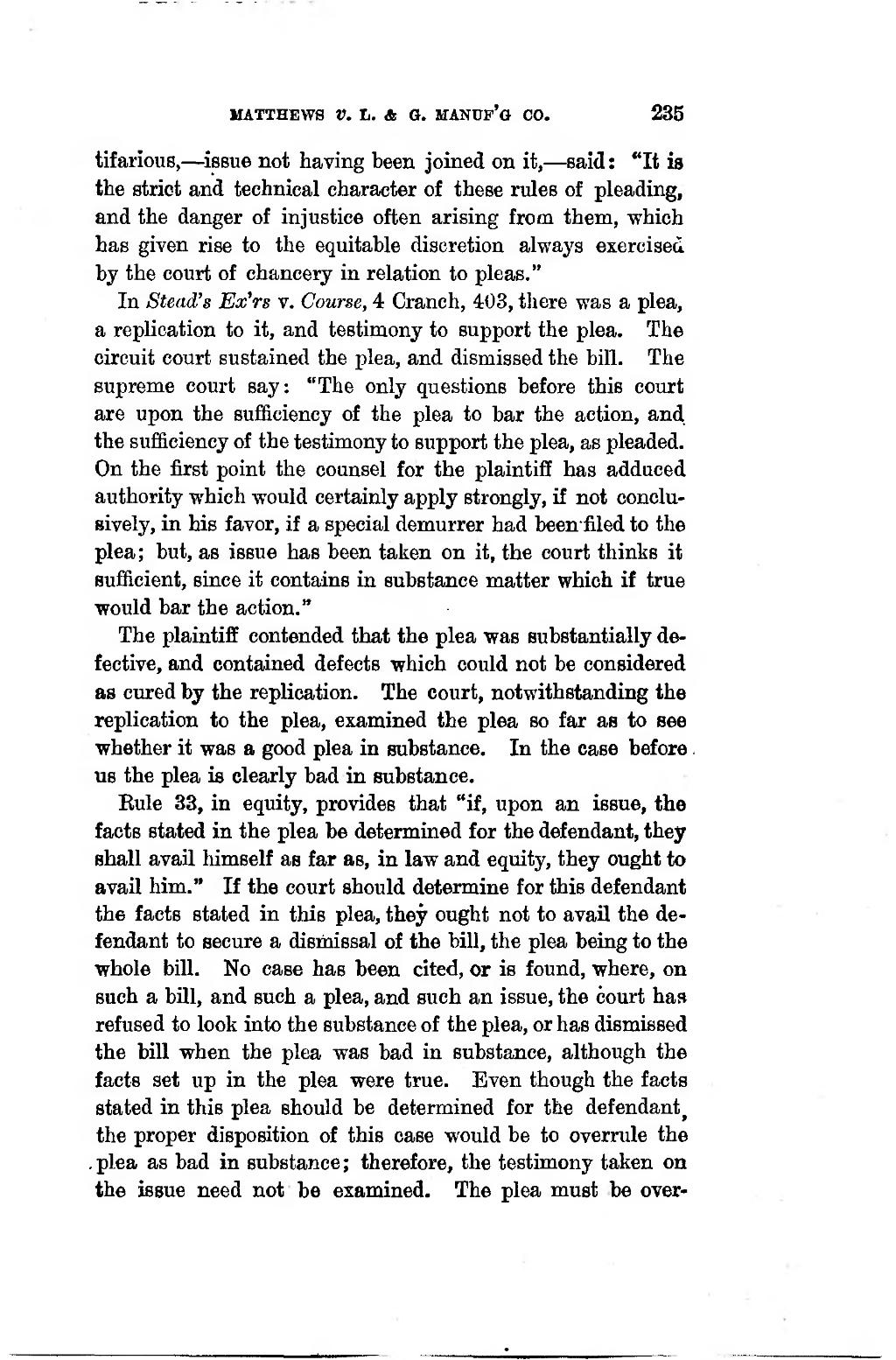MATTHEWS ». Ii. * G. MANtJF'a CO. 235 �tifarious, — issue not having been joined on it, — said: "It is the strict and technical character of these rules of pleading, and the danger of injustice often arising from them, -which bas given rise to the equitable discretion always exercised by the court of chancery in relation to pleas." �In Stead's Ex'rs v. Course, 4 Cranch, 403, there was a plea, a replication to it, and testimony to support the plea. The circuit court sustained the plea, and dismissed the bill. The supreme court say: "The only questions before this court are upon the sufficiency of the plea to bar the action, and the suiËciency of the testimony to support the plea, as pleaded. On the iirst point the counsel for the plaintiS has adduced authority which would certainly apply strongly, if not conclu- sively, in his favor, if a special demurrer had been filed to the plea; but, as issue has been taken on it, the court thinks it sufficient, since it contains in substance matter which if true would bar the action." �The plaintifif contended that the plea was substantially de- fective, and contaiaed defects which could not be considered as cured by the replication. The court, notwithstanding the replication to the plea, examined the plea so far as to see whether it was a good plea in substance. In the case before us the plea is clearly bad in substance. �Kule 33, in equity, provides that "if, upon an issue, the facts stated in the plea be determined for the defendant, they shall avail himself as far as, in law and equity, they ought to avail him." If the court should determine for this defendant the facts stated in this plea, they ought not to avail the de- fendant to secure a dismissal of the bill, the plea being to the whole bill. No case has been cited, or is found, where, on such a bill, and such a plea, and sueh an issue, the court has refused to look into the substance of the plea, or has dismissed the bill when the plea was bad in substance, although the facts set up in the plea were true. Even though the facts stated in this plea should be determined for the defendant^ the proper disposition of this case would be to overrule the , plea as bad in substance ; therefore, the testimony taken on the issue need not be examined. The plea must be over- ����
